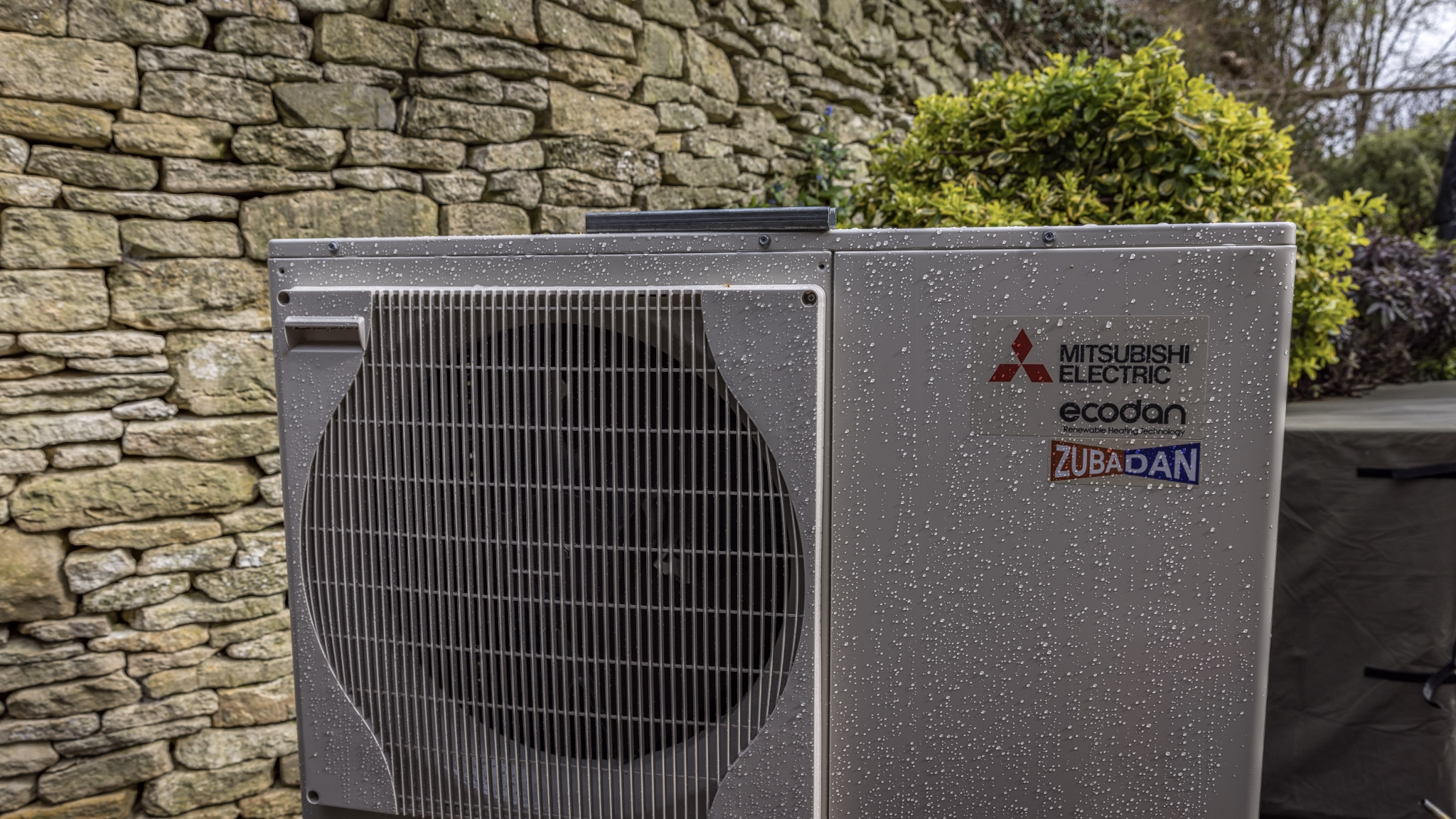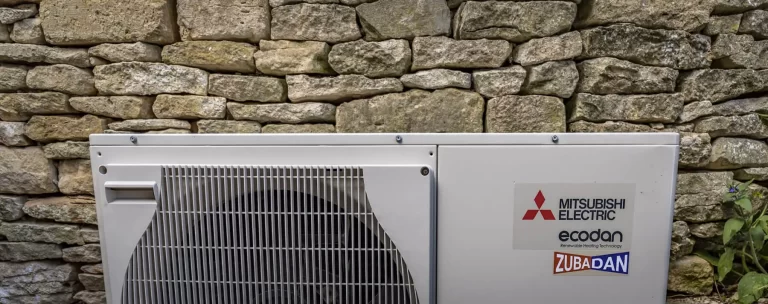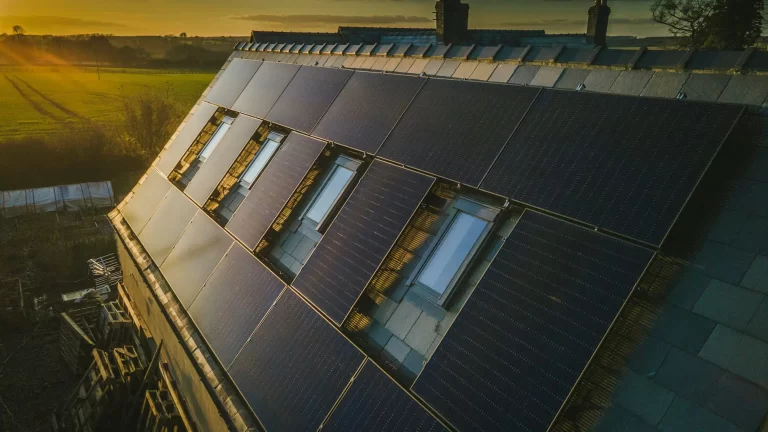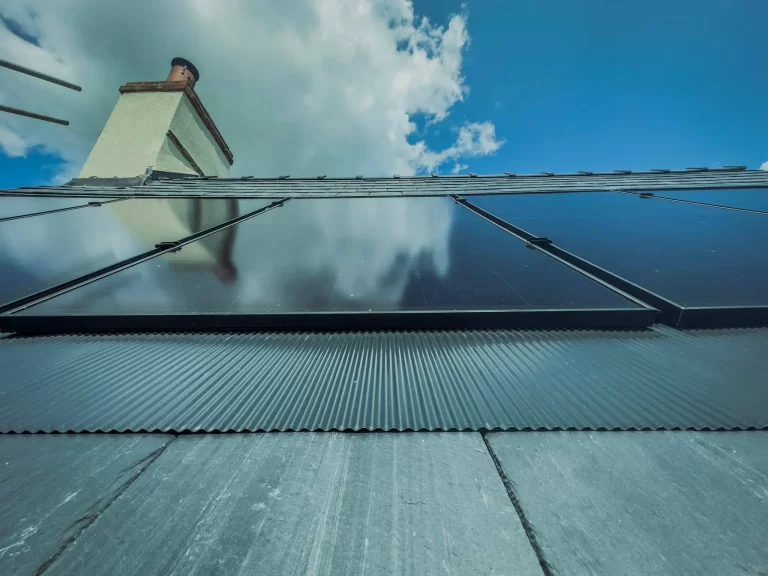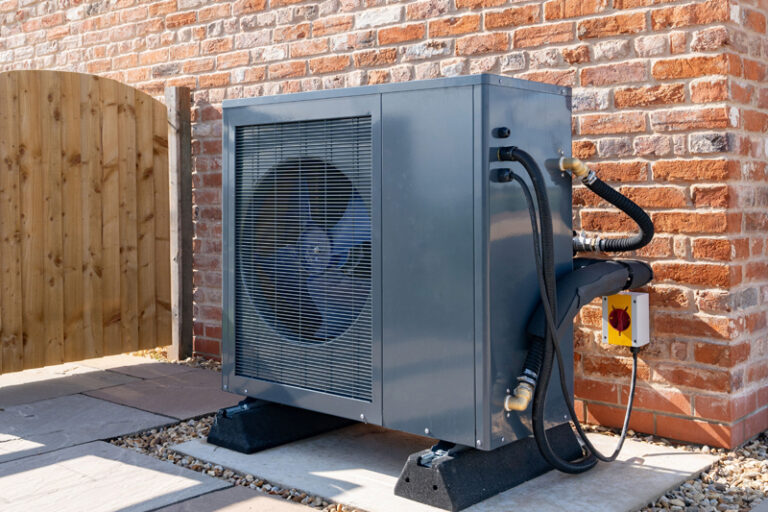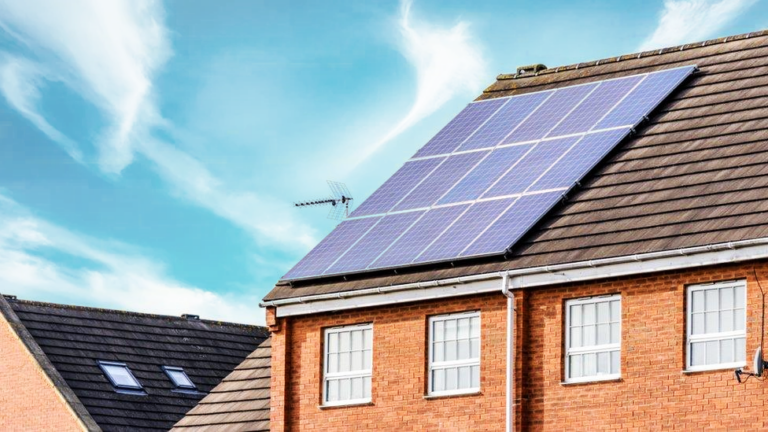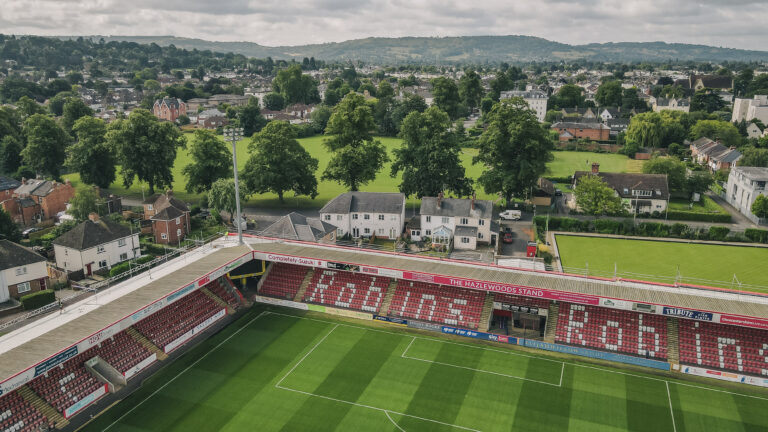Gas boilers and heat pumps can both be used to meet your hot water and central heating needs, but they do this in two very different ways. There are benefits to both types of heating systems, but the one that’s right for you will depend on a few different factors, such as the property you live in, how much money you have in your budget, and the space you have available. In this guide, we’ll explore the differences between heat pumps and gas boilers, helping you to make an informed decision when it comes to changing or upgrading your current heating system.
What are Heat Pumps?
Heat pumps are heating systems that transfer heat from one place to another. They do this using a small amount of energy, but don’t need any energy to generate the heat itself as, unlike traditional heating systems that generate heat by burning fossil fuels, heat pumps transfer heat that already exists in the air or ground outside your home so that it can be used inside.
There are two main types of heat pumps: air-source and ground-source. Air-source heat pumps extract heat from the outdoor air, even in cold temperatures, and transfer it indoors. Ground-source heat pumps, on the other hand, extract heat from the ground, meaning that pipes need to be installed under the soil to absorb this natural warmth.
What’s the Difference Between Gas Boilers and Heat Pumps?
There are quite a lot of differences between gas boilers and heat pumps, with the main one being the way they heat your home. As mentioned, heat pumps simply transfer heat while gas boilers generate it themselves, but what does this mean for you?
Gas boilers use a lot more energy to produce the same amount of heat as a heat pump, making them less efficient and potentially more expensive to run, depending on the price of energy. However, gas boilers can generate heat at a much higher temperature than a heat pump, making them more compatible with traditional radiators. Heat pumps typically require larger radiators, or even underfloor heating, in order to heat your home to the same temperature as a gas boiler, as they produce heat more slowly and at lower temperatures.
Are Heat Pumps More Efficient than Gas Boilers?
In general, heat pumps are more efficient than gas boilers. Efficiency is measured by comparing the amount of heat they generate with the energy they use to do this, so because heat pumps only need to transfer heat rather than generate it, they don’t need as much energy to heat your home to the same standard as a gas boiler.
To put this into perspective, heat pumps can generate three or four units of heat for every unit of energy they consume, which means they’re operating at up to 400% efficiency. By comparison, gas boilers typically only operate at a 90% efficiency rate, as some energy always escapes or is used for something other than directly heating your home.
It’s worth noting that heat pumps only reach the height of efficiency when the home they’re in is properly optimised for their use i.e. with large radiators, underfloor heating and adequate insulation. However, even without the perfect setup, most heat pumps will be more efficient than traditional gas boilers.
Are Heat Pumps More Expensive than Gas Boilers?
The cost to buy and install a heat pump is higher than that of a gas boiler. Heat pumps can cost, on average, anywhere between £8,000-16,000, but may be more expensive depending on the type of property you live in. Costs could also be higher if you need to have your radiators replaced or additional pipework installed. A typical combi gas boiler, on the other hand, usually costs between £2,000-£3,000 to both buy and install, making it considerably cheaper than a heat pump. While some gas boilers cost more than others, especially if they’re larger than normal or particularly difficult to install, the total costs are unlikely to be as high as those of a heat pump.
Is it Cheaper to Run a Heat Pump or Gas Boiler?
While heat pumps are certainly more expensive to buy and install, they can be cheaper to run than a gas boiler, but this depends on the price of energy. Heat pumps use a lot less energy than gas boilers to produce the same amount of heat, as they’re more efficient. On the surface, this seems to suggest that they would be automatically cheaper and result in lower energy bills. However, heat pumps run on electricity, which is usually more expensive than gas. When energy prices are relatively low and the gap between gas and electricity is smaller, heat pumps are typically cheaper to run, but when electricity prices are very high, they can cost the same as or be more expensive than gas boilers to run.
What Grants Are Available?
There are some grants available that can help you pay for the installation of a heat pump, but not for a gas boiler. Most schemes exist because the government wants to encourage households to move away from using gas boilers and to convert to more sustainable ways of heating their homes in order to lower carbon emissions.
One such scheme is the Boiler Upgrade Scheme, which can pay for some of the costs of installing a heat pump if you’re replacing a gas boiler heating system. You may be able to get up to £7,500 to put towards your heat pump installation, which is given as a one-off payment. Not all households will be eligible for the scheme, so make sure you check the criteria carefully before making any final decisions.
Benefits of Choosing a Heat Pump Over a Gas Boiler
Using a heat pump instead of a gas boiler comes with a whole host of benefits, such as improved energy efficiency as discussed above. But what other reasons are there for making a heat pump the main heating source in your home?
- Lower Carbon Emissions: Heat pumps have a much lower carbon footprint compared to gas boilers. By using electricity (which can come from renewable sources) and transferring heat from either the air or the ground, heat pumps contribute to reducing greenhouse gas emissions.
- Versatility: Heat pumps can both heat and cool your home, making them more versatile than a gas boiler and you won’t need a separate air conditioner either.
- Longevity and Durability: Heat pumps are designed for long-term use, with a lifespan that can exceed 20 years with proper maintenance. This durability makes them a cost-effective option over time, compared to gas boilers which may need to be replaced more often.
- Low Maintenance: Heat pumps require less maintenance than gas boilers, as they have fewer moving parts and do not involve combustion. Regular servicing and occasional cleaning are typically all that’s needed to keep a heat pump running efficiently.
- Improved Indoor Air Quality: Heat pumps circulate and filter the air as part of their operation, which can improve the indoor air quality of your home.
- Safety: Heat pumps are considered safer than gas boilers because they do not burn fossil fuels to generate heat, thereby eliminating risks associated with gas leaks, carbon monoxide poisoning, and explosions.
Is a Heat Pump or Gas Boiler Better for My Property?
Gas boilers and heat pumps can be used in most types of properties, especially if you’re willing to make some necessary adjustments for heat pumps. However, heat pumps usually do perform best in well-insulated homes, which is why they’re so popular in new builds. This is because they operate at lower temperatures, so if your home traps the heat better, it should feel warmer. But many heat pumps can and have been successfully installed in older properties with poorer insulation and work very efficiently, so don’t rule out your home just because of its insulation.
While it’s possible to install an air source heat pump in most homes, the same can’t be said for a ground source heat pump. This is because ground source heat pumps require a lot of outdoor space to install, so you would need a garden of around 600 square feet at least and be willing to have most of it dug up for the pipework.
Does a Heat Pump Take Up More Space than a Gas Boiler?
Yes, heat pumps do take up more space than a gas boiler, but not too much. Most heat pumps are around the same size as a fridge-freezer, so they can easily be stored in the corner of a room or in a hallway cupboard. However, heat pumps also need a hot water cylinder, as they warm water more slowly than a gas boiler so it needs to be stored somewhere. The size of your hot water cylinder will depend on your household’s hot water needs, which is something you’ll need to consider before your installation.
Both an air source and ground source heat pump system will also need some space outside your home. An air source heat pump requires minimal outdoor space and should fit even in very small gardens, whereas ground source heat pumps need a much larger space due to their extensive pipe systems.
Are Gas Boilers Being Phased Out?
The UK government is planning to phase out gas boilers by 2035 and they won’t be installed in any new-build homes from 2025. Even after 2035, if gas boilers do become obsolete, you should still be able to use the one in your home if you have one, as it should run on hydrogen as well as natural gas.
However, given these upcoming changes, it’s clear that choosing to install a heat pump now future-proofs your home by aligning with evolving energy policies and market trends towards sustainability. As global efforts to combat climate change intensify, regulations increasingly favour renewable energy sources, meaning heat pumps help to ensure your heating system meets future energy standards, allowing you to avoid costly upgrades.
Is it Worth Replacing a Gas Boiler with a Heat Pump?
Whether it’s worth replacing your gas boiler with a heat pump depends on your current circumstances. You’ll need to consider the current energy efficiency of your boiler, the cost of installing a heat pump, and how easy it would be to install either of these heating systems. Heat pumps are generally a much more efficient way to heat your home, especially if your property is well-optimised for their use, and they could also save you money in the long run. However, they do also require extra space and can be a significant investment at the beginning, making them unsuitable in some situations.
If you’re not sure whether installing a heat pump is the right move for you, get in touch and speak to one of our team. We’ll be able to help you better understand how your current situation lends itself better to either a gas boiler or a heat pump, as well as give you all the information you need to make the right decision.

